Search Results for Tag: UK
Why Brexit bodes ill for the Arctic
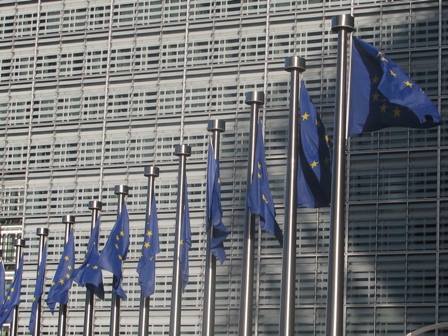
EU headquarters in Brussels. The Arctic is high on the European Union’s foreign policy agenda. The EU Council just published new Conclusions on the Arctic (Pic: I.Quaile)
Today’s Ice Blog post was going to be about permafrost, with the the International Conference on Permafrost drawing to a close after a week in Potsdam outside Berlin today. But the Brexit decision is casting a shadow over a lot of things today – and that includes the international spirit of cooperation that is the key to successfully tackling the all-embracing challenge of climate change and its destructive impacts on Arctic ice and permafrost. And while the permafrost is melting, the political atmosphere and social climate here in Europe are definitely becoming much colder.
British breakaway bad news for science
Not that the decision in itself will necessarily have a direct, immediate impact. Scientific research will go on in Britain and other parts of the world regardless of whether or not the country is a member of the European Union. The UK has a long tradition of polar exploration and research. But research relies on international cooperation – and the EU has become one of the key funders of Arctic research in recent decades.
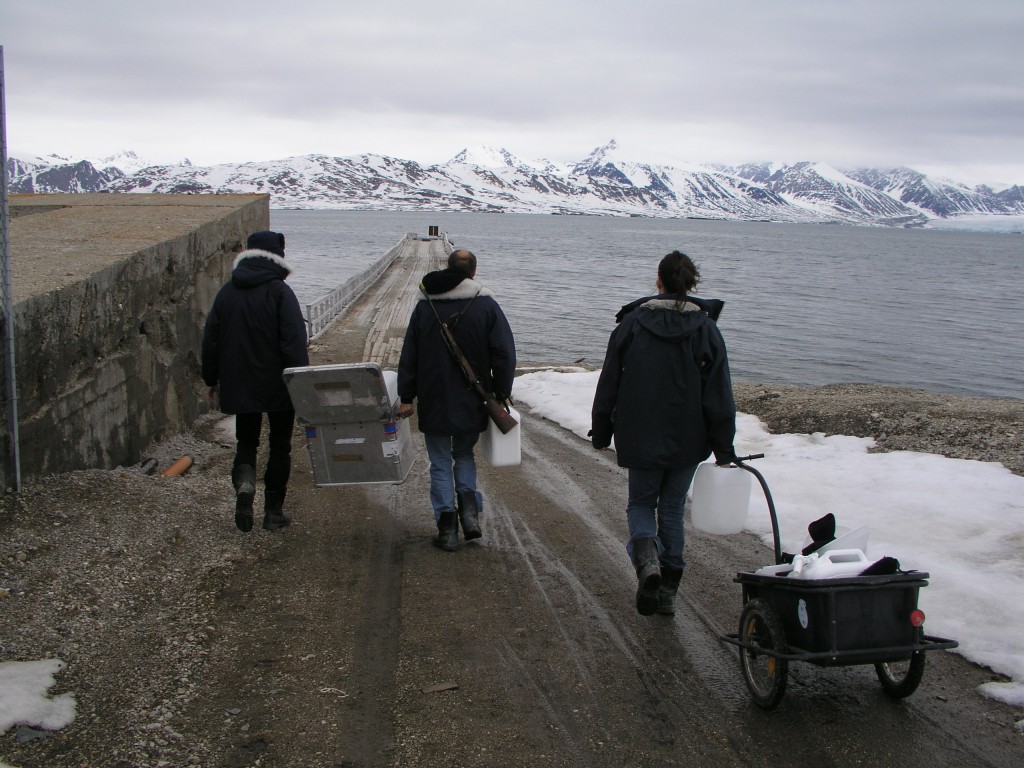
British Arctic marine biologist collaborating with Dutch colleagues. (Ny Alesund, Spitsbergen, Pic: I.Quaile)
Leading scientists including Stephen Hawking have said a Brexit would be a disaster for UK science in general.
A group of 13 Nobel prize-winning scientists have also warned that leaving the EU would pose a “key risk” to British science. The group, which includes Peter Higgs, who predicted the existence of the Higgs boson particle, say losing EU funding would put UK research “in jeopardy”.
“Inside the EU, Britain helps steer the biggest scientific powerhouse in the world”, the group claim in a letter to the British Daily Telegraph.
While the other side insisted leaving the EU would not be damaging, the majority of scientists appear to be in favour of Britain remaining in the EU. 83% of scientists polled opposed Brexit.
International “give-and-take”
It is not just a matter of EU funding for British science. The scientist group stressed that British scientists should also be involved in the EU as a hub of innovation and research. They say more than one in five of the world’s researchers move freely within the EU boundaries.
Restricting this free movement is one of the key aims of the Brexit campaign. As a British journalist working in Germany, I have experienced the benefits of being able to travel, study and work in other European countries for many years.
Future generations bear the brunt
The majority of young people who voted apparently voted to stay in the EU. This is the generation that stands to gain or lose by the Brexit decision. If I think of all the dedicated young scientists from Britain and other countries I have interviewed over the years, working across borders on issues that are certainly not limited to one local area, it makes me sad and even angry that they stand to lose out because of a campaign that was based on negative sentiments like the desire to keep foreign workers and refugees out of Britain, or vague and unfounded claims that everything that does not work in Britain is the fault of the EU. No, it’s not perfect, but I doubt that many of the arrangements that protect nature in the UK and other European countries would be in place without the involvement of Brussels. And how is a body like the EU going to change and reform if not through pressure from within?
Anyone who cares about the environment knows that without international cooperation, it is not possible to protect our air, land, water and atmosphere against abuse and pollution.
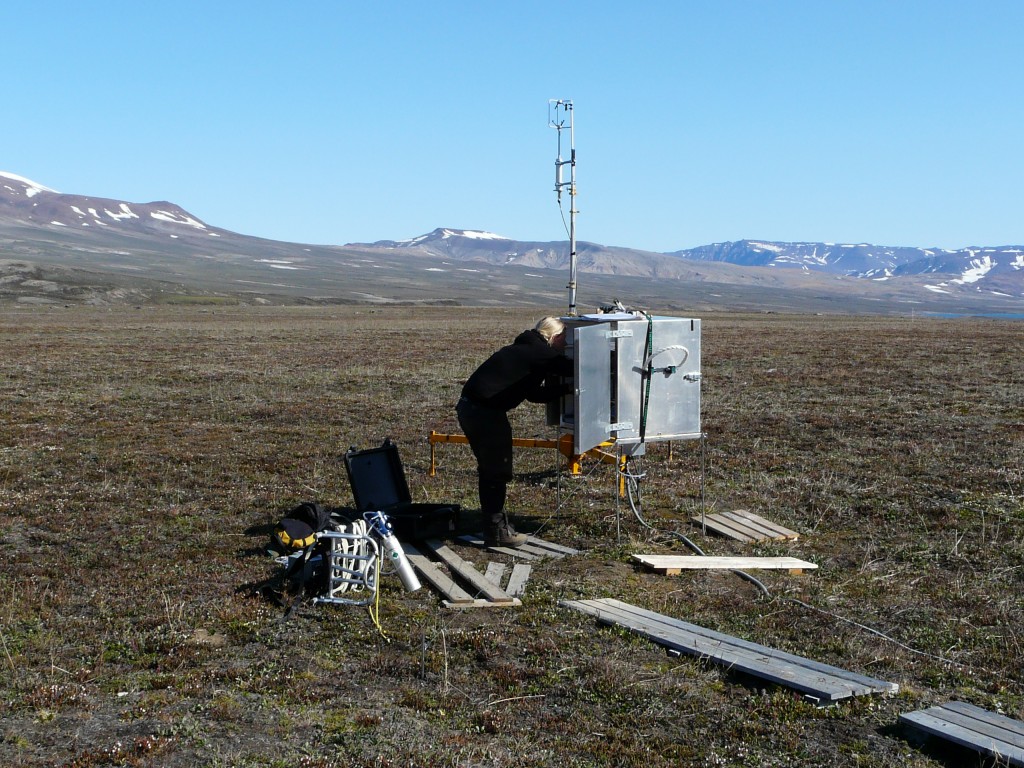
Measuring CO2 emissions from summer permafrost at Zackenberg, Greenland. GLobal emissions warm the Arctic, melting permafrost reinforces the global warming effect. (Pic: I.Quaile)
Not just about money
In an article for the MIT Technology Review, Debora MacKenzie says the EU budgeted 74.8 billion euros for research from 2014 to 2020. Brexiters, she writes, say British taxpayers should simply keep their contribution and spend it at home:
“They’d take a serious loss if they did. Britain punches above its weight in research, generating 16 percent of top-impact papers worldwide, so its grant applications are well received in Brussels. Between 2007 and 2013, it paid 5.4 billion euros into the EU research budget but got 8.8 billion euros back in grants. British labs depend on that for a quarter of public research funds, a share that has increased in recent years. A cut in that funding after Brexit could drag down every field in which British research is prominent—which is most of them.”
MacKenzie also quotes Mike Galsworthy, a health-care researcher at University College London who launched the social-media campaign Scientists for EU:
“It’s not just funding, EU support catalyzes international collaboration.” Galsworthy puts his finger on a key issue here:
“The EU funds research partly to boost European integration: for most programs you need collaborators in other EU countries to get a grant. This isn’t a bad thing, as collaborative work tends to mean more and higher-impact publications.”
Indeed.
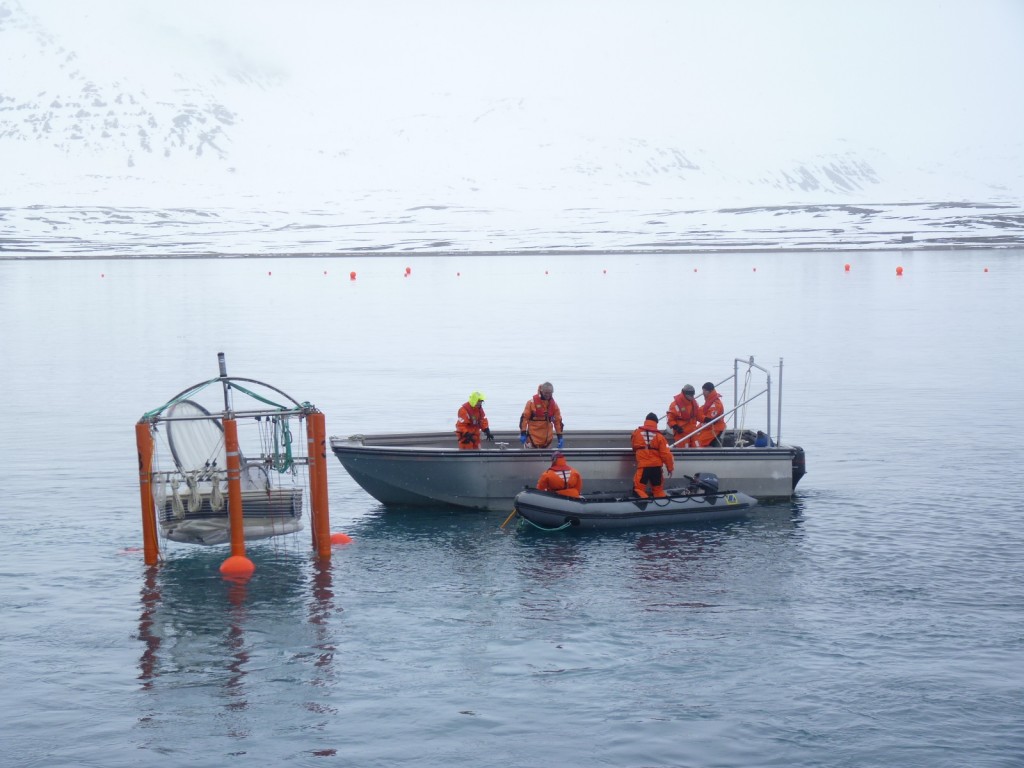
International team measure ocean acidification off Spitsbergen, as part of EU EPOCA programme. (Pic.: I.Quaile)
One shared world
The spirit behind the vote to leave the EU is to a large extent based on nationalism and xenophobia. If it were to prevail, it would lead us backwards and result in fragmentation. That has to be bad news for those of us who believe in working together across borders for the greater good of the planet as a whole. Climate warming is a global phenomenon. We need to work together to tackle it. The icy regions of the northern hemisphere may belong geographically to individual countries like the USA, Canada, Russia or Norway. But in today’s industrialized, globalised world, no single player alone can stop the ice from melting. Or regulate the increased fishing, shipping or exploitation of natural resources in once pristine areas now becoming rapidly accessible.
Climate scepticism on the rise?
A poll conducted recently for the BBC indicates that the number of people in the UK who are sceptical about science has risen. Of the 1,001 adults who were questioned, 25% said they did not think global warming was happening. BBC news says this shows an increase of 10% since a similar poll in November.
The percentage who accepted climate change as a reality apparently fell from 83% in November to 75% in the latest poll, and only 26% of those interviewed said they believed climate change was happening and “now established as largely man-made”.
The poll was conducted by Populus, the same group who carried out a similar poll for the Times paper in November 2009. At that time, 41% agreed climate change was happening and was largely the result of human activities, so that would appear to be a considerable drop.
Although these polls refer to the UK – home to the University of East Anglia, at the centre of the leaked emails controversy – I feel sure the trend will not be limited to that country.
Populus poll for bbc results
It appears to confirm my fear that the email scandal and the faults in IPCC reports have seriously damaged the credibility of climate science.
The failure of the Copenhagen summit after all the hype could also have made a lot of people doubt the seriousness and urgency of the climate change issue.
Happy Icy New Year

Happy New Year Ice Blog readers. I have been on holiday enjoying the winter weather in Germany and the UK. A lot of people are complaining about the cold and the bad road conditions and delays on planes and trains – but I for one am happy to have a real winter. What else would you expect from the ice-blogger? Some colleagues reckon this will save me an Arctic trip…
There is a lot of talking and joking as usual about whether the extreme winter conditions will undermine the acceptance that humankind is affecting the climate.
I was interested to read in the British press today that some British newspapers have even been taking the name of Professor Mojib Latif in vain, a respected climate expert at the Leibniz Institute of Kiel University Germany – whom I have interviewed several times. Two conservative papers apparently misinterpreted his research as signalling a switch from global warming to cooling. Fortunately (i.e. in the interests of the truth and no misrepresentation) today’s edition of The Guardian puts his research into context and quotes him as affirming his strong belief in man-made global warming.Prof Latif says the cold spell is short-term “weather” and not a cooling related to ocean cooling which he describes in his work. He also compares the complexity of the climate problem to Einstein’s theory of relativity and stresses the difficulty of presenting it accurately in the media. I’ll second that, but keep doing my best.
Before I stop for today I’d like to draw your attention to a comment posted by David Scrimgeour under the last entry.
He draws attention to the question of how clean technologies are going to be trasferred across borders, and what incentives there will be for example to German companies to invest in projects in potentially risky locations. Good question, David.
I personally think companies will only go into this if they know there is a market, and a market with a future. We need clear signals from governments – which we didn’t really get in Copenhagen – but we also need to draw companies’ attention to the finance experts who say it will ultimately be cheaper to work against global warming, and to all the studies which indicate the future lies with clean technology which does not put a burden on the climate. And of course companies are ultimately interested in making a profit. Look how some energy companies have realised fossil fuels are finite and are getting into alternative renewables – to secure their future.
Any other views on this?
In line with global trend ,Copenhagen heats up- and what about the rest of us?
The heavyweights are on their way to Copenhagen. 115 heads of state. Here’s hoping they’ll produce more than hot air.Things are not really looking good for a final binding agreement. Then again, it’s really hard to tell whether all the warnings from high-ranking people are just designed to make us prepare for the worst so that whatever comes out of the truly-mega-meeting will seem better than expected.
One danger I see is that people expect the politicians and the Copenhagen meeting to solve all the problems. It’s easy to say “there’s no point in my doing anything, it won’t have any effect if the top brass can’t get their act together”. But there is. I met with a group of US energy experts visiting Germany the other day ot look at renewables. One Professor from Texas was talking about how that state, the “oil state” had become a US leader in wind energy. The interest came from “the bottom up”, as he put it. Now the Obama administration is channeling funds in that direction to push the wind energy sector further.
The British opposition leader David Cameron is pushing a partnership between local authorities, businesses and householders to save up to 30% of the UK’s carbon emissions by making homes more energy efficient. Cameron is trying to give his party a “green” profile as the voters head for a general election in 2010. Whatever his motives, campaigns like this mean direct action to reduce co2 regardless of international political agreements.
Let’s not just wait for the bigwigs in Copenhagen to come up with something. Sure, we need these agreements. But in the meantime, we have to do our own bit.
Sisyphos and the climate
Apologies for blog-silence. For one reason and another I wasn’t able to blog for the last couple of weeks.
The question is – did you miss it? Or have you been reading, watching, listening to so much about climate change you are getting tired of the subject?
I am very concerned that the international community is accepting that there will be no legally binding agreement in Copenhagen. I am even more concerned that a lot of people are getting tired of the climate change topic and simply don’t care. Is there a danger of “overkill” in our media coverage? I was giving a training session to some young journalists yesterday and some of them told me about a project they were planning dealing with that very subject. They have the feeling that there is so much attention to the topic that global warming is starting to leave people cold. (Sorry!) People like me were pleased that climate change came onto the “mainstream” political and public agenda. But unless there is a big disaster – and a clear link to climatic factors – people are tending to “switch off”.
I’ve been speaking to friends in the UK about the latest floods in northern England. People are happy to blame politicians, local authorities or private companies for inadequate drainage or flood protection. Some say “it’s just nature”. But few are willing to even consider a possible link to scientists’s predictions of an increasing number of extreme weather events because of climate change.
Yvo de Boer from the UNFCCC is giving a major press conference today about the Copenhagen meeting. I don’t envy him his job. Trying to keep interest alive in view of the apparent concensus that Copenhagen will not “seal the deal” has something of the Sisyphean about it.



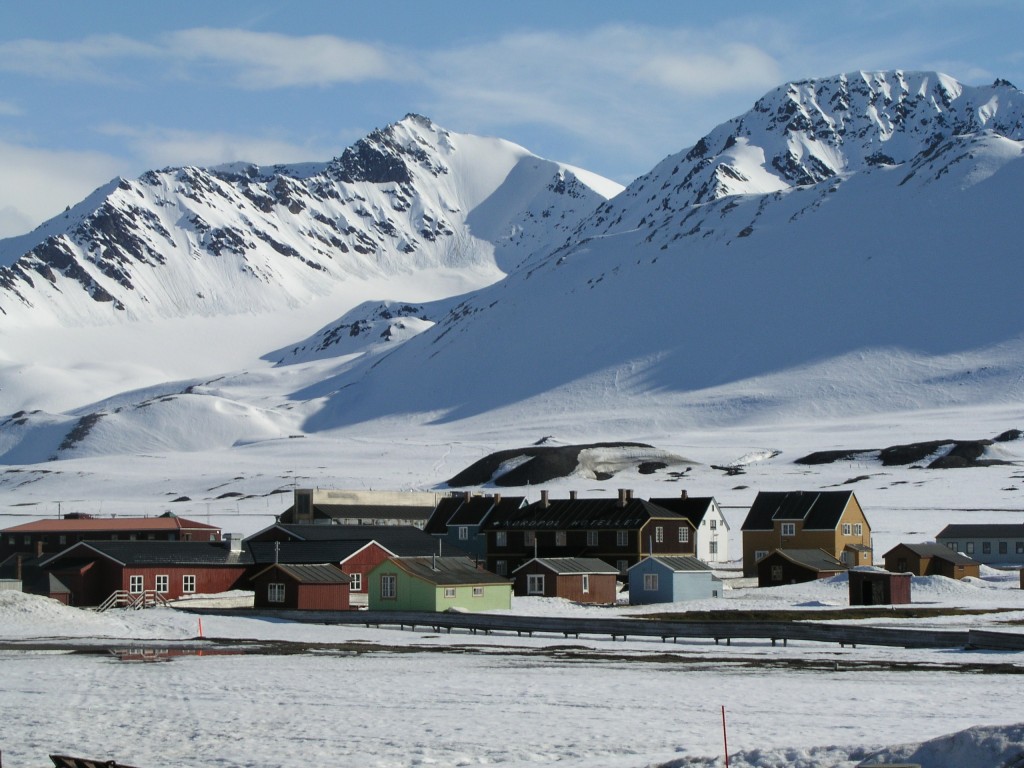

















Feedback